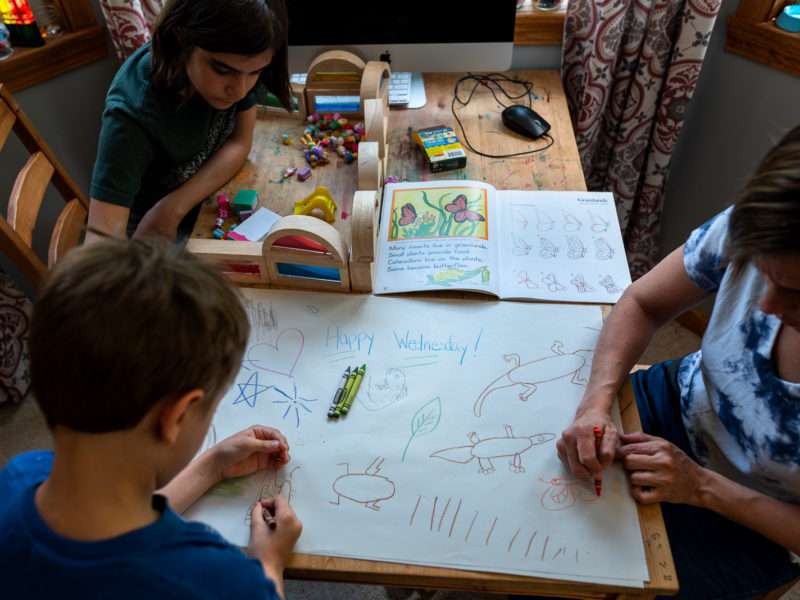Let Go To Thrive When Homeschooling Neurodiverse Kids ~
Written by Colleen Kessler from Raising Lifelong Learners
Our homeschool year started last week. By Tuesday of this week, I had melted down into a puddle and called my friend crying. I was overwhelmed, burnt out, and sure I was not going to be able to handle doing it again this year.
Folks, I’ve been homeschooling, both typical and neurodiverse kids, for thirteen years. And I was sure (at several points this year) that I was absolutely going to fail and have been messing up my kids all along the way. Sound familiar?
Most homeschool parents face this meltdown point at one time or another — many cycle through it again and again. And, if you’re homeschooling neurodiverse children, you probably cycle through it more often than most.
Parenting and homeschooling differently-wired kiddos is exhausting.
Sometimes the hardest part can be letting go of our own expectations. The reality is, though, that it can be one of the very best things we can do for our atypical child.
There are five areas where letting go can set us on the path to freedom and joy when homeschooling neurodiverse kids.
How to Thrive When Homeschooling Neurodiverse Kids
1. Educational Expectations
If you have homeschooled your child for any length of time, this one likely doesn’t surprise you. When our atypical children progress on their own timelines and learn in atypical ways, it becomes essential to let go of any formal educational expectations we may have had for children.
The good news is, once we let go, our children are free to learn in the ways that work best for their unique needs.
2. Social Expectations
Neurotypical kiddos have a way of upending our social expectations as well. Friendships often look much different for our children than we imagined. In fact, many atypical kids find peers that are much younger or much older to be better fits.
For one of my children, one of the best social relationships was an older mentor-type figure.
Letting go of preconceived notions of what a social life looks like for our children takes the pressure off of us and allows our kids to thrive in relationships that make sense for their needs.
3. Parenting Expectations
You may let things slide that other parents would never dream of letting their kids “get away with.”
Read that again.
You may find that you allow more screen time, books to be read, language that you never imagined being a part of your dinner conversation, and have so many more parenting expectations completely upended than you ever expected.
I am here to encourage you be okay with that. Let go of the guilt or fear that comes from comparing ourselves to other parents, and instead create boundaries and rules in your family that make sense for your particular children.
4. Nutritional Expectations
Restricted or obsessive eating is often a part of the puzzle that we are putting together in an effort to support our children. This means that nutritional expectations might look completely different for your family.
My friend Shawna used to allow her son, who had extremely restricted eating due to sensory issues, have ice cream in the morning before school. It gave him a little bit of protein, calmed down the flight or fight he experienced each meal time, and made the day progress more smoothly. On more than one occasion, she was accused of spoiling him.
He turned out just fine – healthy and eventually, able to handle a more traditional breakfast. She has no regrets.
5. Personal Expectations
This one can be the most difficult of all. The truth is, many of our children simply require more care. This means less time for our own pursuits and relaxation.
I want to encourage you to do what you can, when you can, and remember that you are a person too! Your health and care matters just as much as your child’s. After all, you are their parent.
They need you to be healthy and happy.
So remember, when you’re melting down on Tuesday of your second week of school — and then again every few weeks all year long — you’re not alone.
Parenting and homeschooling neurodiverse kids is tough. You’ve got this, friend. I promise.
What’s Your Child’s Learning Style? Take Jamie’s new quiz now and set yourself up for homeschooling success by understanding the way they learn best!



